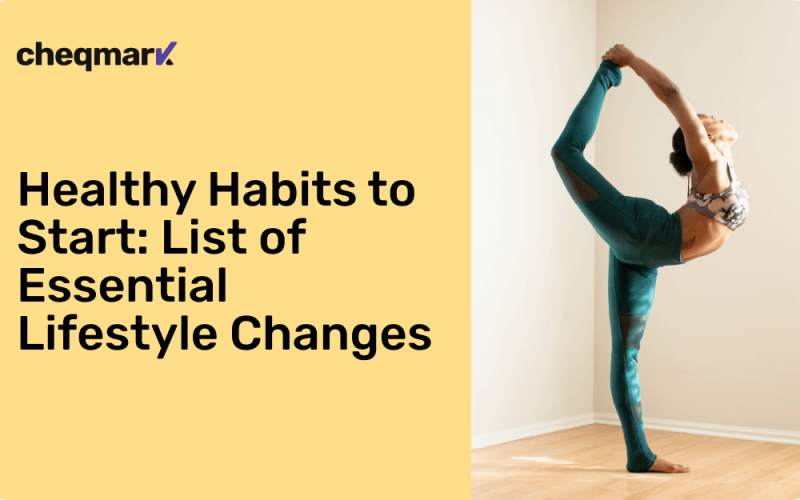If you are looking for a bit of change that is easy to incorporate into your day-to-day life, we have just what you need. From practicing meditation, walking daily, learning new languages, and drinking water, below are the best healthy habits to start.
Build your morning routine
A morning routine with the same wake time every day, a healthy breakfast, and some exercise is an excellent place to start.
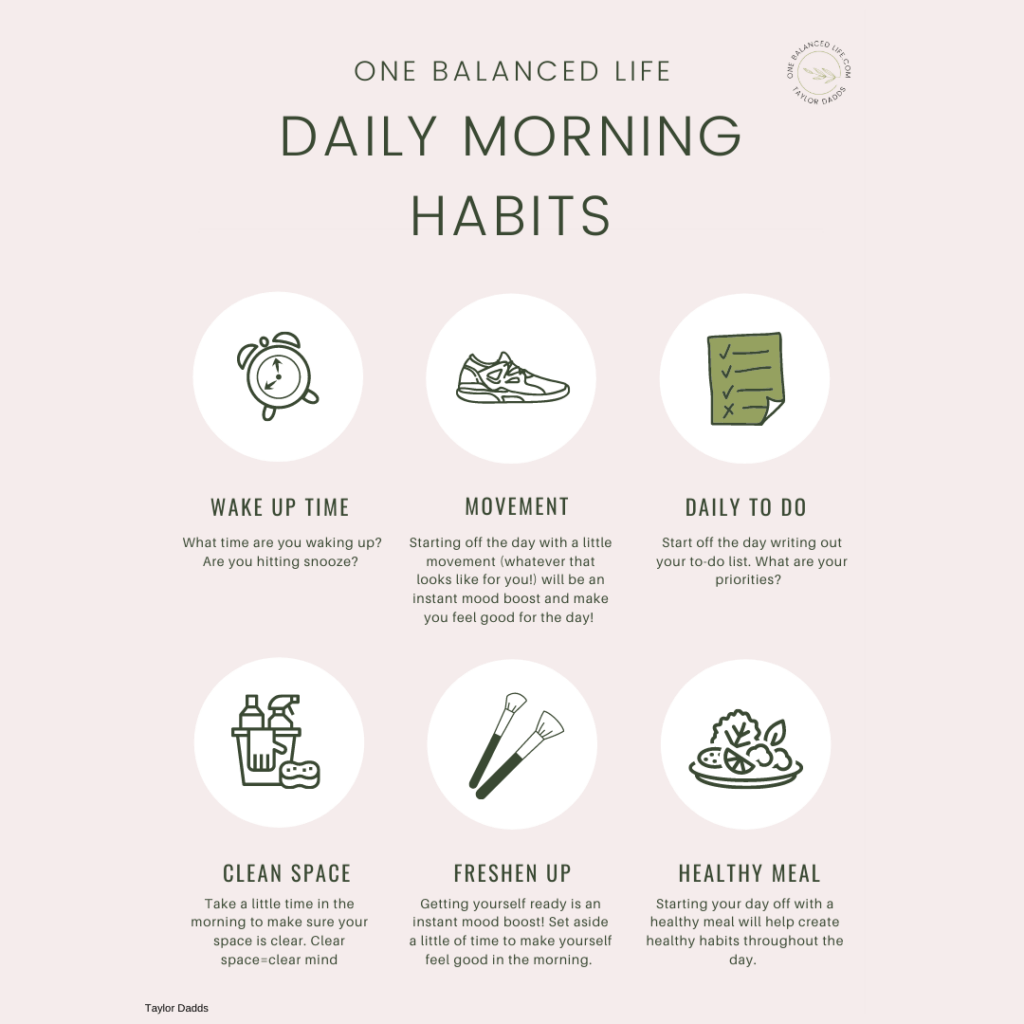
Create your evening routine
This routine will help you end your everyday life on a relaxing note. Have a light dinner, leave your gadgets alone, take a warm bath, stretch, breathe, relax, and wish yourself a good night’s sleep. All these routines can be a part of your sleep schedule.
Practice meditation
A clear mind can do wonders for your physical and mental health. Even five-minute meditation on a daily basis will have a huge impact on you, leading to a happier life. For example, regular meditation practice can improve your sleep quality. If you aren’t ready to start meditating yet, try at least to slow down and pay attention to the depth of your breathing.
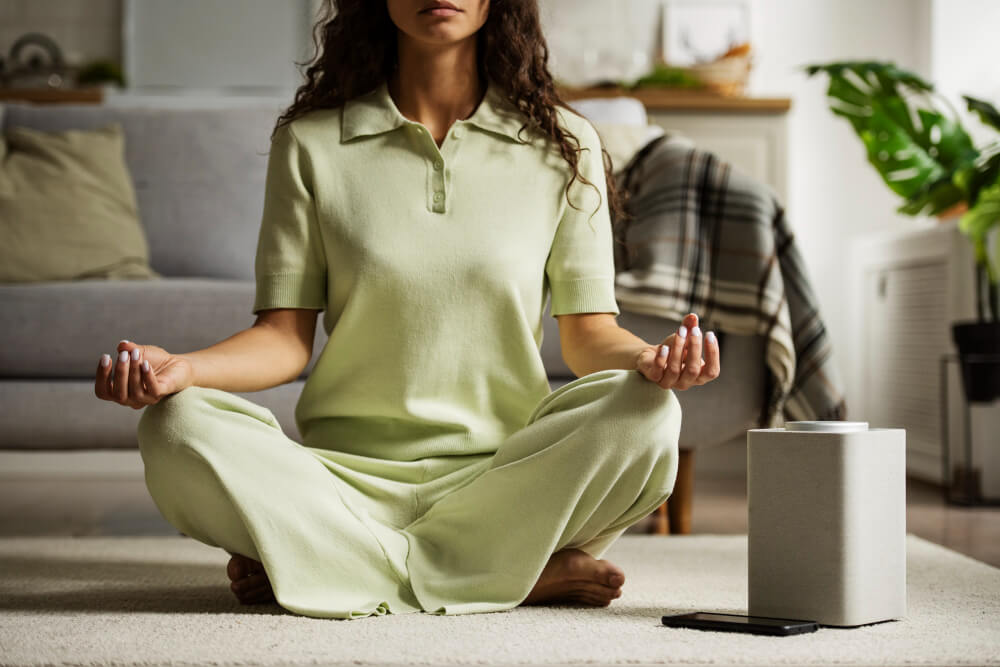
Drink more water
Water is important for us to feel healthy. That’s why you should stay hydrated. Read how to form the habit of drinking more water.
Walk every day
Take a walk outside at least once a week. It doesn’t matter if it will last fifteen or forty minutes. You need to move. Don’t use the elevator. Walk up the stairs instead. Try to do at least 10 000 steps per day.
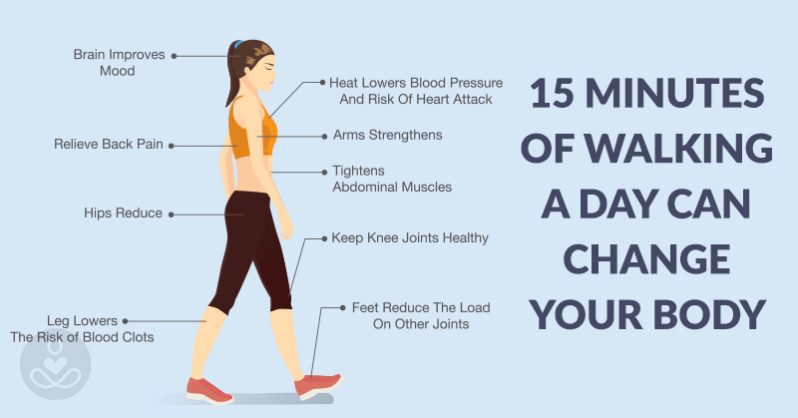
Eat less processed foods
Try to cut down canned, cooked, frozen, pasteurized, or packaged foods and junk foods, as most are loaded with too much sugar, salt, additives, and preservatives. Instead, practice healthy eating with fresh vegetables, fresh fruits, whole grains, nuts, and legumes.
Reduce the amount of meat in your diet
This is a crucial step for a healthy lifestyle and a healthy planet. You even may try yourself in plant-based diet after consultation with your doctor.
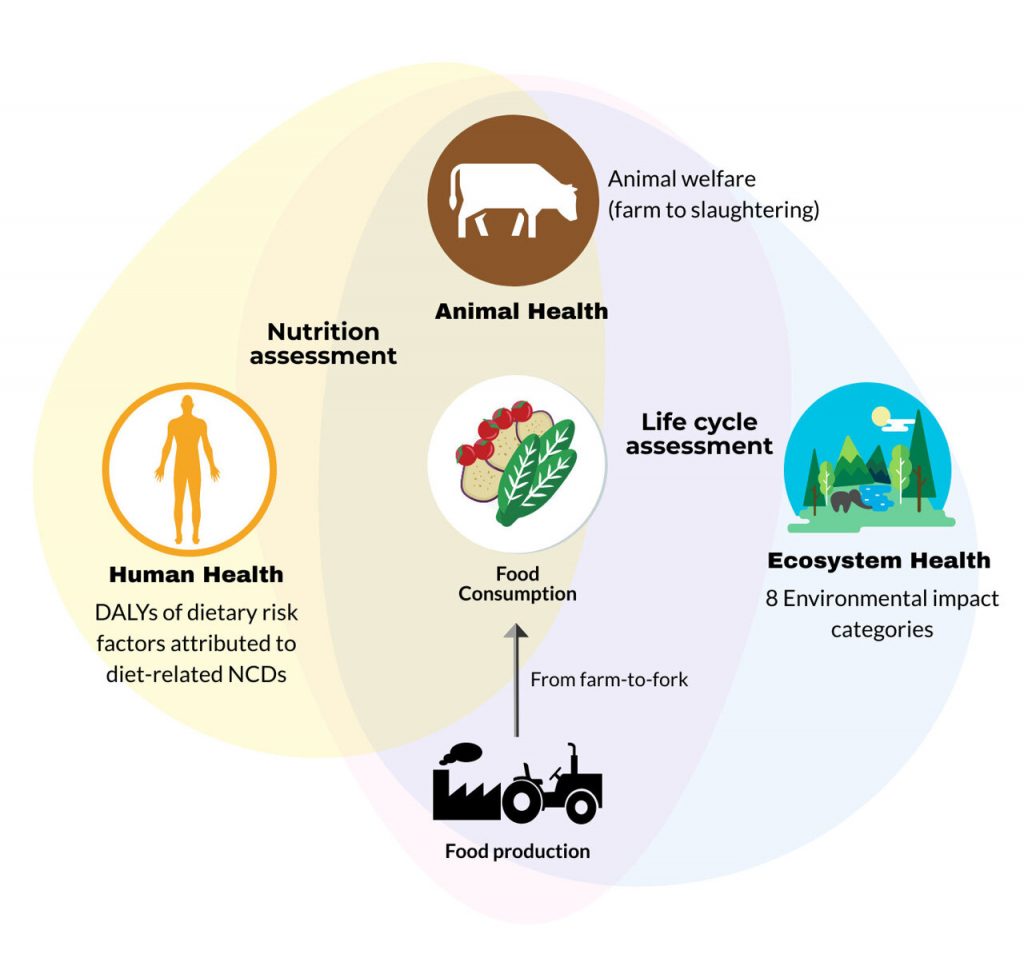
Make checklists and to-do lists
Checklists will help you stay organized. There are so many different ways to make a checklist. For example, you can write down your plans for the day, track your water intake, create shopping lists, etc. Use our checklist maker tool to create your lists. It’s a free way to keep track of health goals.
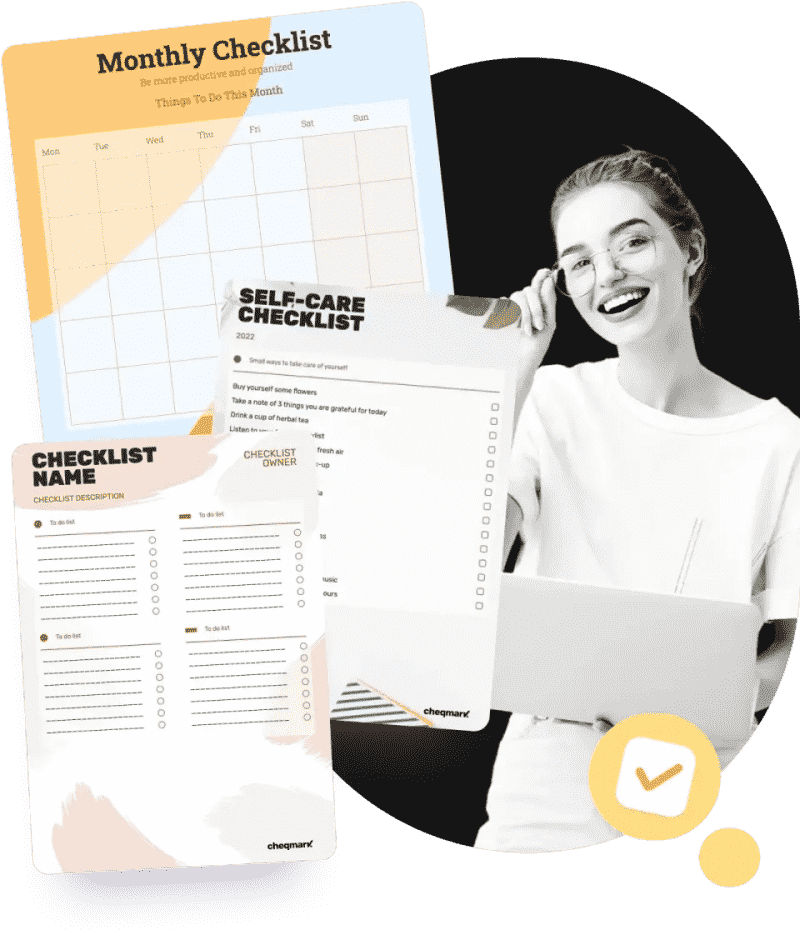
Straighten your posture
Pay attention to how you sit. Do not constantly cross your legs, and do not slouch. A straight posture is good for the back, gives self-confidence, and helps you think positively.
Try contrast shower
In the morning, take a contrast shower if you lack sleep. It helps wake up no worse than a cup of strong coffee.
Quit smoking
Doing so will reduce the risk of premature death, add ten years to life expectancy, and increase quality of life. So today is a perfect day to get rid of this unhealthy habit.
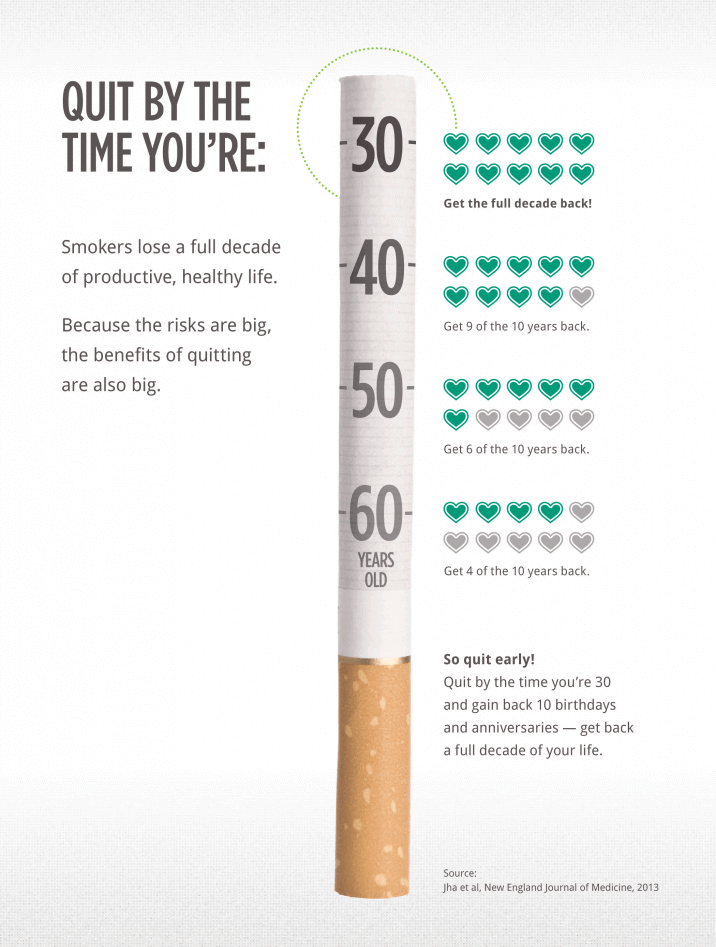
Do eye exercises
This may help your eyes feel better after sitting in front of the computer or using a smartphone for a long time.
Source: https://www.icarevision.com/vision-therapy/eye-exercises-you-can-try-at-home/
Keep your room cool for uninterrupted sleep
Room temperature impacts your sleep quality and how quickly you fall asleep.
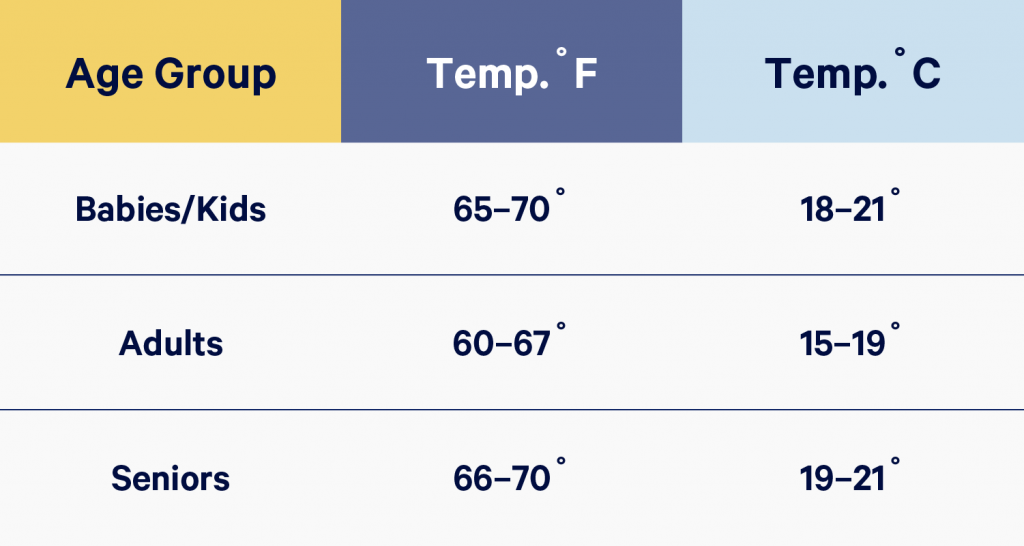
Get a humidifier
Using a humidifier can help you prevent dryness of the skin. It’s also an excellent method to make you feel better when sick.
Take care of your skin
Wash your face in the morning and before bed to remove oils, dirt, and bacteria. Exfoliate your skin when necessary. Use a moisturizer every day and drink more water. Skin health is often linked to overall well-being, and digital health solutions can help track and improve dermatological care. A healthcare software development agency can create innovative tools for personalized skincare recommendations and virtual consultations. Also, consult your doctor about health issues that can cause skin problems.
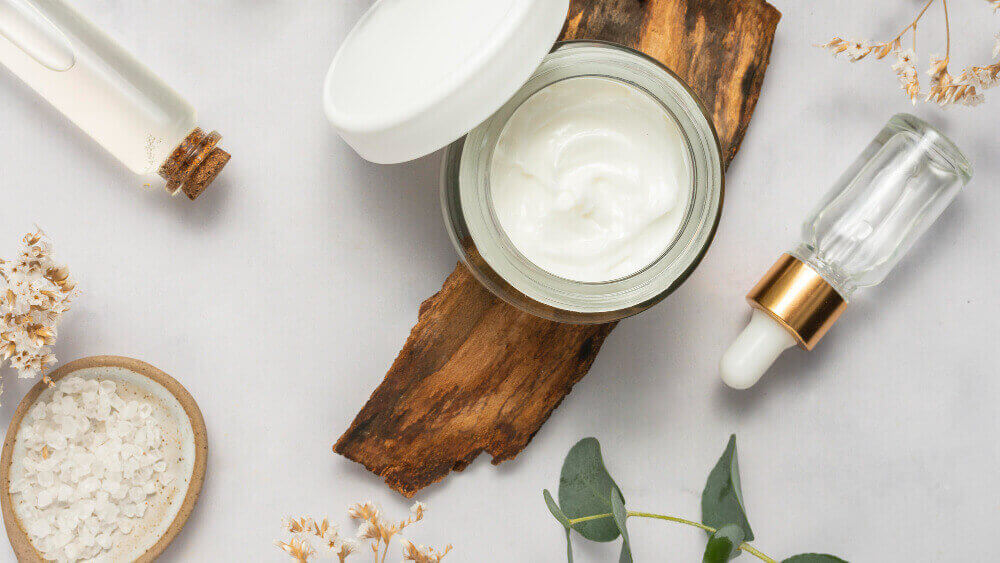
Do regular teeth checkups
Don’t miss appointments with your dentist, especially if you are fond of sweet treats.
Healthy teeth are essential because they help us chew and digest food, speak clearly, and have a good face shape. Experience sunshine to increase vitamin D
Vitamin D has a lot of roles in the body and is important for optimal health. For example, it prevents depression.
Take vitamins regularly
Indeed, most of the vitamins must come from food. However, we only sometimes eat properly. That’s why we might need to take vitamin and mineral supplements. Be sure to check with your doctor before starting any new supplements.
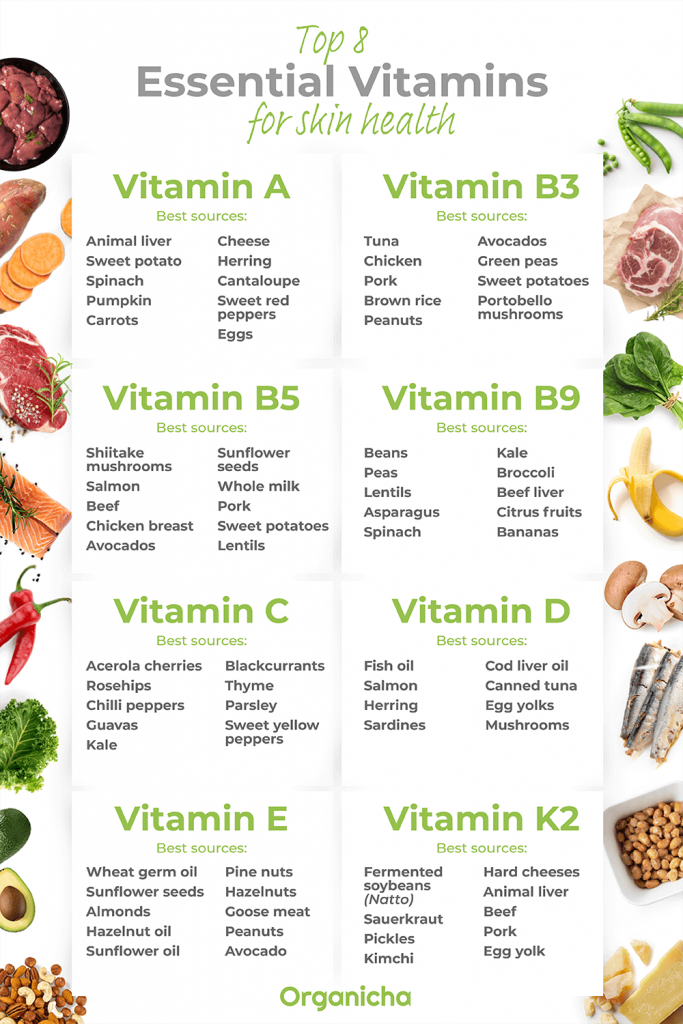
Go to your medical checkups
Regular checkups are important self-care elements that help ensure your body is fit and can prevent any unwanted sicknesses. To make the process smoother, many clinics now use the best EMR for small practice to keep records organized and provide efficient care tailored to your needs.
Take on a hobby
Individuals with purposeful activities are less likely to suffer from low mood, stress, and depression. Read how to start a new hobby and live a fulfilled life.
Find natural ways to relieve stress
Try meditation, relaxation exercises, aromatherapy, herbal teas, or time with pets.
Limit fizzy drinks
Opt for plain water or water with lemon instead.
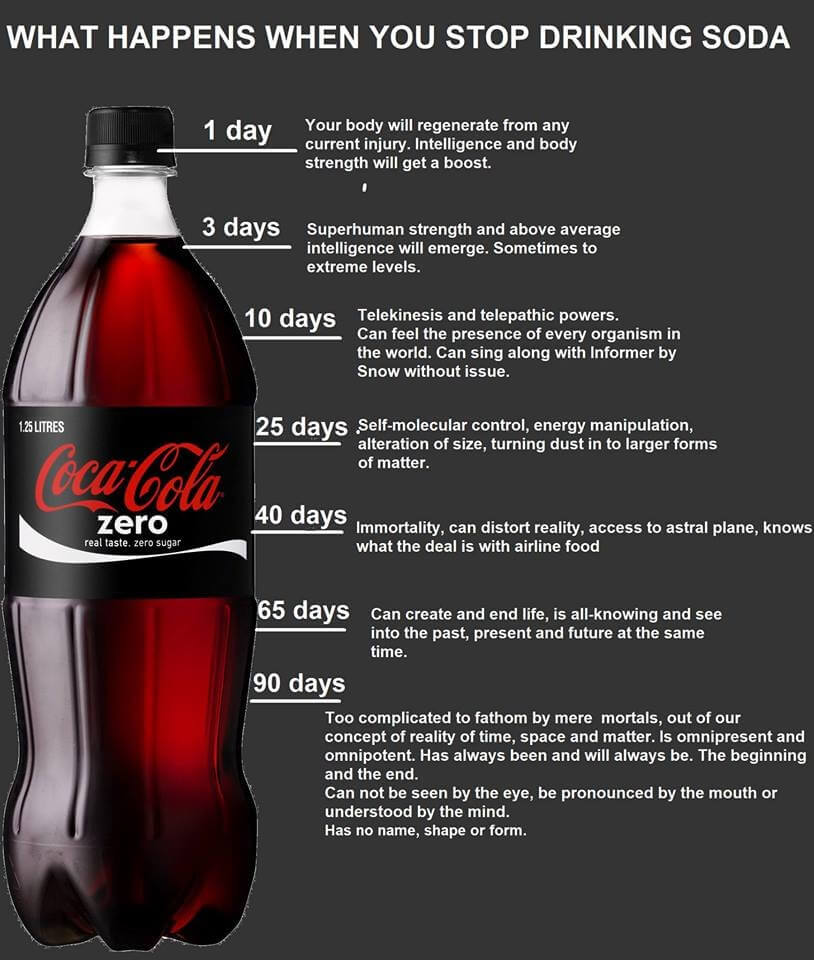
Watch less TV
People watching TV for long periods of time are usually more likely to be obese and at risk of heart disease. On top of that, it contributes to higher stress levels. Instead, try reading books or listening to podcasts instead of watching TV.
Lose or gain weight for your health, not looks
Also, keep in mind that managing your weight is a life-long commitment. Following a diet for a few weeks to drop kilograms isn’t effective. Instead, try to eat healthy foods and do regular exercise. It will help you to lose body weight and reduce the risk of heart disease.
Clean your home regularly
Pay particular attention to your bedroom. Vacuum it regularly to remove dust and dead skin cells. This simple habit will positively impact your mental health and help you achieve larger goals in the future.
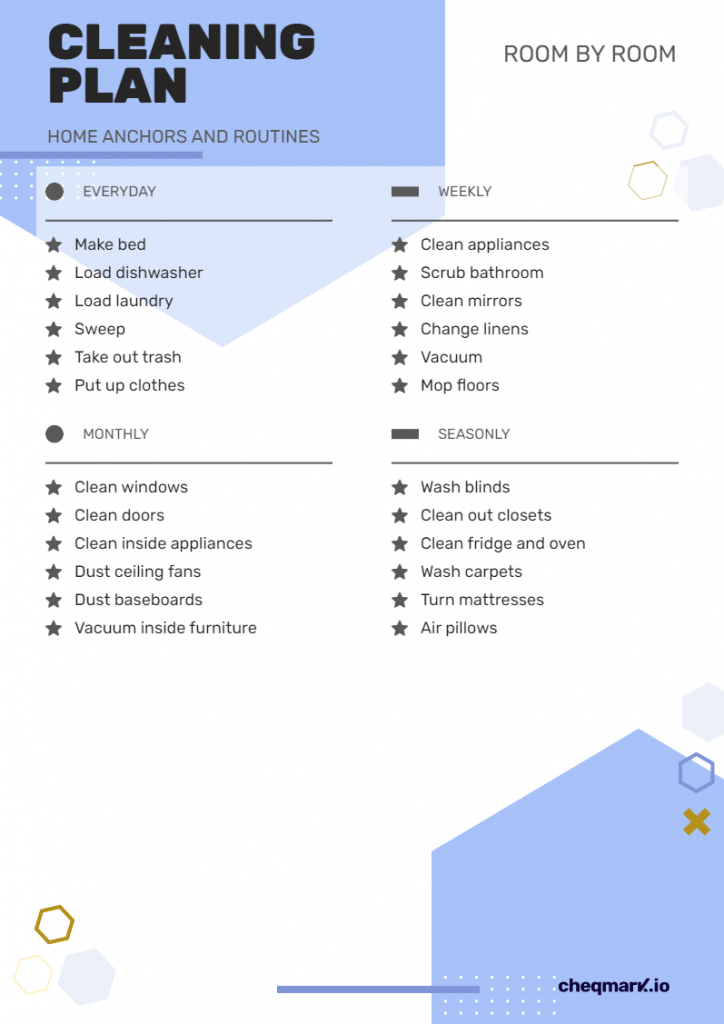
Reduce the amount of time you spend on social media
Take care of your brain health and self-esteem. Try to spend more time on the important things in life, not watching others’ busy lives. Go out with friends, call your parents, start a new hobby, and work out.
Have regular intimate life
It can improve cardiovascular health, relieve pain, increase immunity, reduce stress, and make you sleep better, and many other health benefits. So, work on your personal life
Track how you spend your time
This will help you become more productive and therefore spend less time procrastinating and more time on things you enjoy.

Practice self-compassion
Tame your inner critic and learn to speak more kindly to yourself.
Stand up every hour
This is especially important to those having sedentary work. Drink a glass of water, take the stairs when possible, eat lunch away from your desk, and stand or walk around when taking phone calls.
Avoid toxic environment
Spend time with people who bring you joy and learn to say “no” to those who don’t.
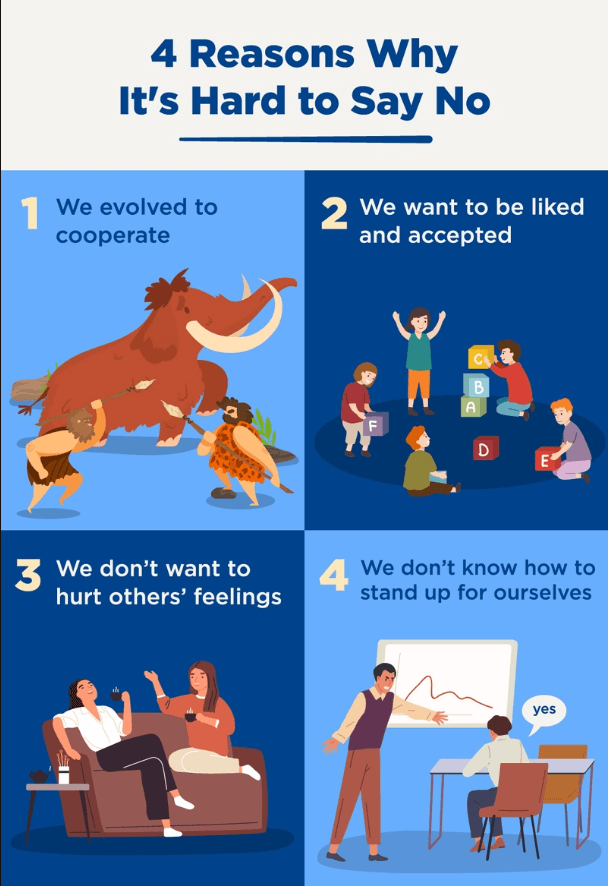
Wash your bedsheets once a week
Even after a couple of days, bedsheets can accumulate a lot of dirt, sweat, and dead skin cells. If you forget to change your bed linen regularly, this can lead to skin rashes and irritation and may even worsen allergy symptoms.
Do some dry brushing before a shower
It’s wonderful for blood circulation and makes skin softer.
Take care of your gut
All you eat isn’t just nutrition for you. You also feed the trillions of “good” and “bad” bacteria that live in your gut. The “good” bacteria help you digest foods and can be good for your physical and mental health. To keep the balance between both types of bacteria, increase the amount of fiber (vegetables, fruits, legumes, nuts), and eat fermented vegetables, like kimchi, sauerkraut, and pickled vegetables, like onions and gherkins. Lower your stress levels.
Limit your caffeine intake
Although caffeine can boost your energy levels, it can also have various side effects, such as insomnia, anxiety, high blood pressure, dehydration, heartburn, headache, heart health diseases, and many more. Caffeine is found in coffee, tea (including green tea), soda, chocolate, energy drinks, and medications. Up to 400 milligrams of caffeine per day is safe for most healthy adults. However, for some people, caffeine may not be good at all. So try to limit drinking coffee and drink plenty of water instead.

Lower your sugar intake
Overdosing sugar is a bad habit. But don’t worry; you don’t need to eradicate sugar if it makes you happy. Just be sure to eat food that contains sugar in moderation.
Learn a new language
This will help delay dementia symptoms, fight depression, increase attentional control, and have fun.
Spend time with pets
They need your care, and you need the activity — it’s a win-win. On top of that, interacting with animals can reduce stress, anxiety, and depression. If you have a dog, walk together every day in the fresh air enjoying the warm water. If you don’t, volunteer your dog walking services for a local shelter.

Normalize going to therapy
Regular therapy can lead to a happy life, so don’t be afraid to search for professional help in your area. Treatments with psychologists, psychiatrists, or therapists can drastically improve your well-being.
Drink less alcohol
If you drink alcohol regularly or occasionally, cut your consumption in half. For example, drink only one glass of wine and remember to drink water after it. If you don’t drink at all, keep up the excellent work.
Dance
Dancing is a great cardio exercise improving your physical health and fun, and is also conducive to happiness and overall well-being.

Play sports
Join a sports team (football, volleyball, swimming) to combine exercise, camaraderie, and competition. Remember to have a water bottle to drink after the training in your sports bag.
Smile more
Try to put a huge, warm smile on your face as often as possible. It will automatically trigger happiness in you and the people around you. So, establish this one of the best daily habits to make the world around you brighter.
Learn to read nutrition labels
This will help you make healthier choices and identify nutrient-rich foods for a balanced diet. With time you will see a massive difference in your body weight before and after you start, you start this healthy lifestyle habit.
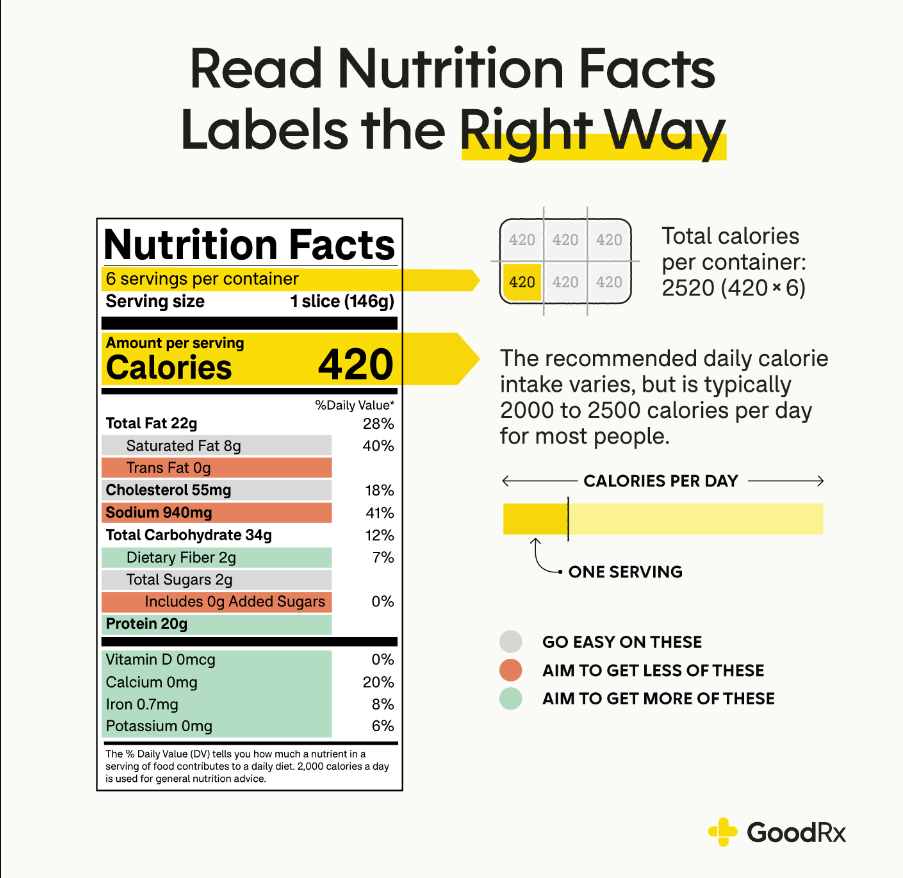
Take smaller bites and eat slowly
This will ensure better digestion.
Get a massage once a month
A relaxing massage relieves digestive disorders, joint pain, insomnia, migraines, and many chronic or injury-related pain types.
Stay home when you are sick
Working when sick could worsen your health problems and take much longer to recover. So, stay in bed and have enough hours of sleep.
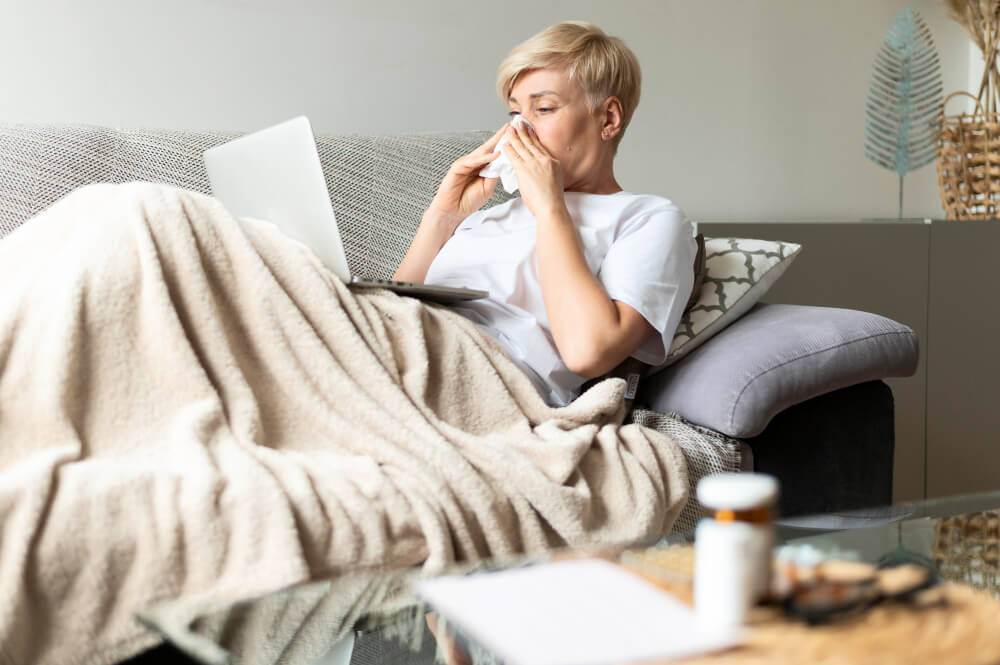
Start biking
Use your bike instead of a car, taxi, or subway. Biking is one of the best activities you can do for your mind and body by increasing your heart rate and reaching your body with oxygen.
Don’t snack if you are not hungry
Mindless eating can lead to obesity and general unfulfillment. That’s why eating, enjoying, and listening to your body is important. Eat when you are hungry, not bored, stressed, or upset.
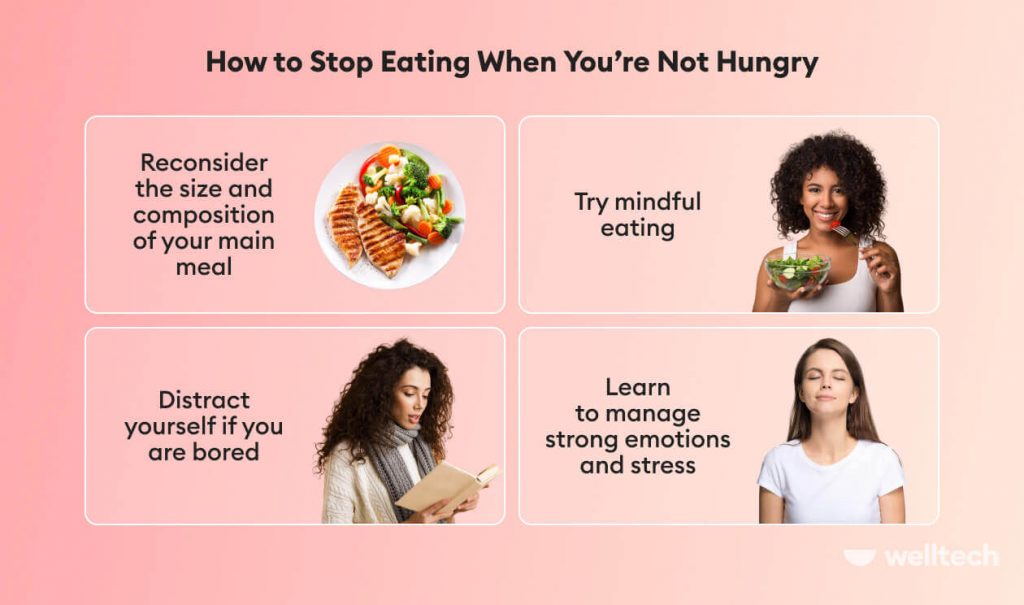
Learn to rest properly
Everyone deserves to rest and recharge. Rest is essential for better mental health, concentration, a healthier immune system, memory, and improved mood.
Final thoughts
There you have it. We gathered healthy habits to start to become your best self. Don’t be harsh on yourself; take steps to turn new habits into daily routines. Track your progress with the help of our checklist templates. And remember, practice makes perfect!
